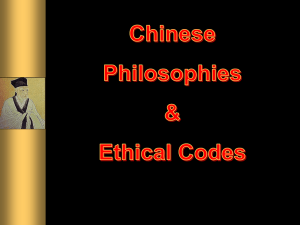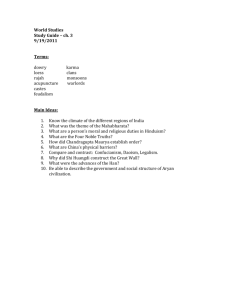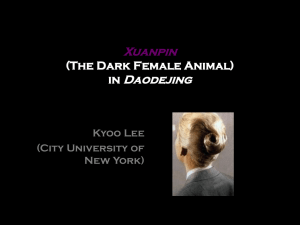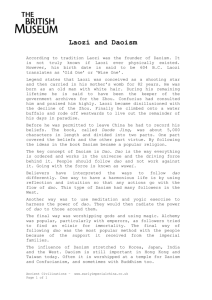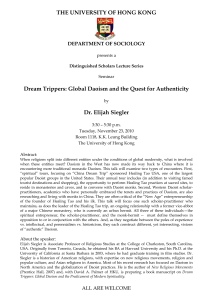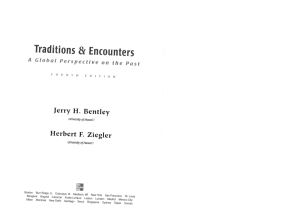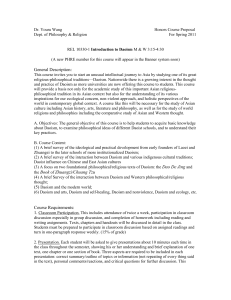Daoism (Taoism) Study Guide: Key Concepts & History
advertisement
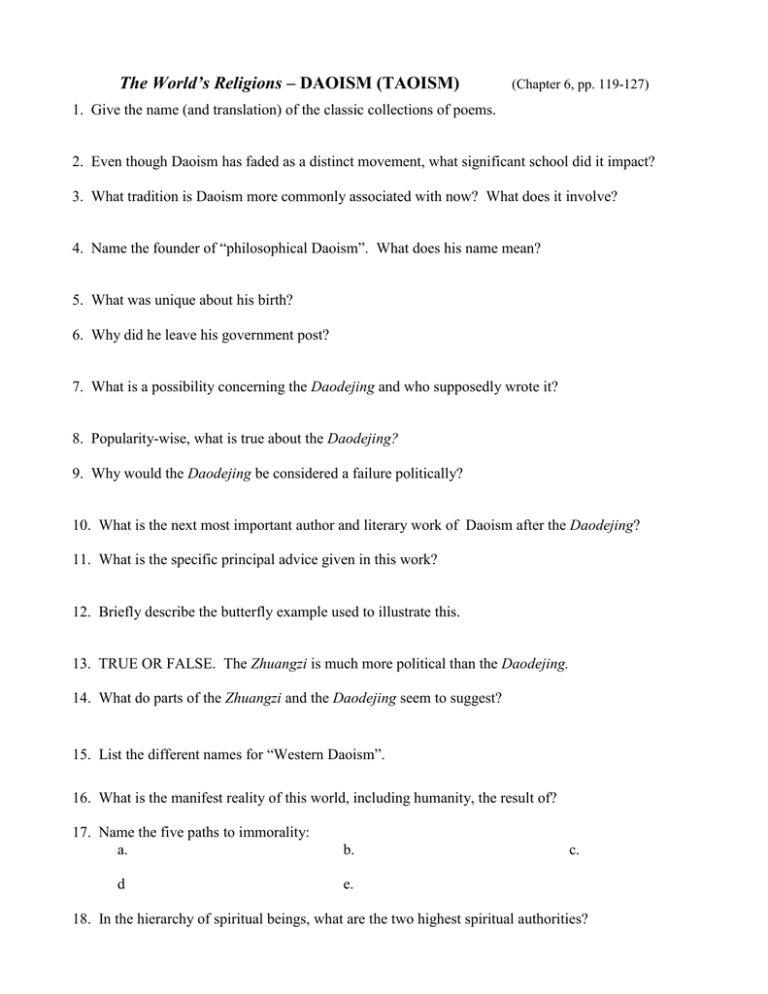
The World’s Religions – DAOISM (TAOISM) (Chapter 6, pp. 119-127) 1. Give the name (and translation) of the classic collections of poems. 2. Even though Daoism has faded as a distinct movement, what significant school did it impact? 3. What tradition is Daoism more commonly associated with now? What does it involve? 4. Name the founder of “philosophical Daoism”. What does his name mean? 5. What was unique about his birth? 6. Why did he leave his government post? 7. What is a possibility concerning the Daodejing and who supposedly wrote it? 8. Popularity-wise, what is true about the Daodejing? 9. Why would the Daodejing be considered a failure politically? 10. What is the next most important author and literary work of Daoism after the Daodejing? 11. What is the specific principal advice given in this work? 12. Briefly describe the butterfly example used to illustrate this. 13. TRUE OR FALSE. The Zhuangzi is much more political than the Daodejing. 14. What do parts of the Zhuangzi and the Daodejing seem to suggest? 15. List the different names for “Western Daoism”. 16. What is the manifest reality of this world, including humanity, the result of? 17. Name the five paths to immorality: a. d b. c. e. 18. In the hierarchy of spiritual beings, what are the two highest spiritual authorities? 19. Who are the Three Officials (or Three Heavenly Worthies)? a. b. c. 20. Who are the Eight Immortals? 21. What is the “God of the Stove”? 22. Name the 2 main organizations which perpetuate Daoism today (and what the names mean). 23. State the quote which serves as a caution from the Daodejing. 24. In one sentence, briefly explain the views of the Dao on the following: a. Humanity – b. Humanity’s basic problem – c. Cause of problem – d. Goal (both individual & communal) 25. Why is the notion of a “goal” ironic in Daoism? 26. What term (and translation) expresses life in harmony with the Dao? What are some characteristics of this? 27. It is said that this means “achieving without achieving.” How does goodness happen? 28. What does this mean for governments? In education? 29. The Dao is NOT: a. b. 30. Where is Devotional Daoism found today? 31. What is the official policy of the Communist government of China regarding Daoism? 32. What is taiji (tai-ch’i)? What are its principles? 33. What is feng shui?
